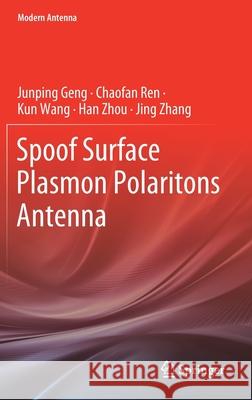Spoof Surface Plasmon Polaritons Antenna » książka
topmenu
Spoof Surface Plasmon Polaritons Antenna
ISBN-13: 9789811647208 / Angielski / Twarda / 2021 / 180 str.
Spoof Surface Plasmon Polaritons Antenna
ISBN-13: 9789811647208 / Angielski / Twarda / 2021 / 180 str.
cena 523,30
(netto: 498,38 VAT: 5%)
Najniższa cena z 30 dni: 501,19
(netto: 498,38 VAT: 5%)
Najniższa cena z 30 dni: 501,19
Termin realizacji zamówienia:
ok. 16-18 dni roboczych.
ok. 16-18 dni roboczych.
Darmowa dostawa!
Kategorie:
Kategorie BISAC:
Wydawca:
Springer
Seria wydawnicza:
Język:
Angielski
ISBN-13:
9789811647208
Rok wydania:
2021
Wydanie:
2022
Numer serii:
001235255
Ilość stron:
180
Waga:
0.45 kg
Wymiary:
23.39 x 15.6 x 1.27
Oprawa:
Twarda
Wolumenów:
01
Dodatkowe informacje:
Wydanie ilustrowane











